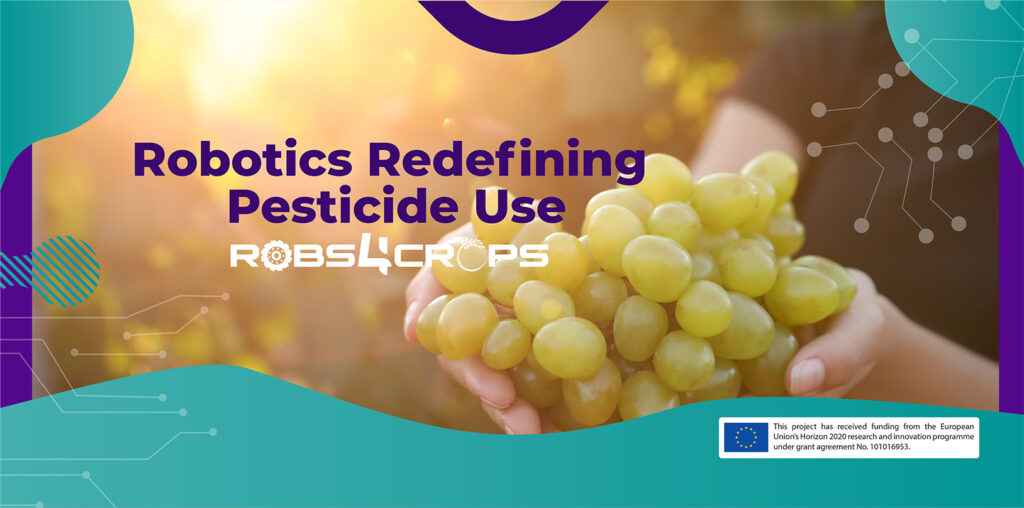The ROBS4CROPS project is actively addressing the reduction of pesticide use through the implementation of innovative robotic farming solutions. By introducing fully autonomous robotic systems supported by smart implements, autonomous vehicles, and a central Farming Controller, the project aims to tackle the pressing challenges of labor scarcity and high costs in European agriculture.
Vineyard Cultivation in France
In the pilot conducted in France, the project targets the environmental impact of vineyard cultivation. It seeks to replace chemical weed control with mechanical weeding using the CEOL robot, tailored for vineyards. This shift not only reduces reliance on chemical treatments but also addresses economic inefficiencies associated with manual tractor-based weeding, enhancing sustainability and lowering pesticide usage.
Arable Farming in the Netherlands
Similarly, in the Netherlands, the pilot focuses on arable farming, aiming to replace chemical weed control with mechanical weeding using the Robotti robot. Crops like sugar beets and pumpkins, requiring multiple weeding passes during their slow growth phase, will benefit from unsupervised mechanical weeding, contributing to reduced chemical dependency.
Table Grape Spraying in Greece
The pilot in Greece takes on the challenge of spraying table grape vineyards. By utilizing the CEOL robot and an autonomous retrofitted tractor for lift-mounted spraying, the project reduces labour-intensive manual spraying. The adaptation of spray rates based on canopy density optimizes pesticide application and reduces overall chemical usage.
Apple Orchards in Spain
In Spain, the pilot’s efforts are directed towards apple orchards, particularly in Catalonia. The use of robots allows for precise adjustment of spray rates based on canopy density and disease severity. This approach not only addresses labor limitations but also contributes to a significant reduction in the quantity of chemicals used in protecting apple crops from fungal diseases.
Economic impact in Agriculture
According to Future Market Insights, by 2022, it is anticipated that the global market for agricultural robots would be valued at $5,994.27 million. By 2032, the global market for agricultural robots is expected to produce sales of $30,500.51 million at a CAGR of 17.7%. The project’s outcomes hold the potential to revolutionize the agricultural robotics market in various ways. Firstly, the implementation of autonomous robotic systems for tasks such as mechanical weeding and precise pesticide application could result in substantial cost savings, boosting the efficiency and viability of farming operations. Additionally, the project’s dedication to minimizing pesticide use could directly lead to reduced chemical costs, aligning with growing regulatory demands and consumer preferences for decreased chemical usage. Furthermore, the precise application of pesticides through robotic systems may contribute to elevated crop yield and quality, translating to improved economic returns and bolstering the overall performance of the agricultural sector.
The future success of the ROBS4CROPS project also serves as a catalyst, showcasing the potential of agricultural robotics to address industry challenges, thereby fostering increased investment, research, and development in the agricultural robotics market. This, in turn, could result in a larger market size and heightened economic activity. Overall, ROBS4CROPS is strategically leveraging robotic technology and advanced control systems to revolutionize crop protection practices. By implementing autonomous robots for tasks like mechanical weeding and precise pesticide application, the project is actively contributing to the reduction of pesticide use and the promotion of sustainable and environmentally friendly agricultural practices across multiple crops and regions.

